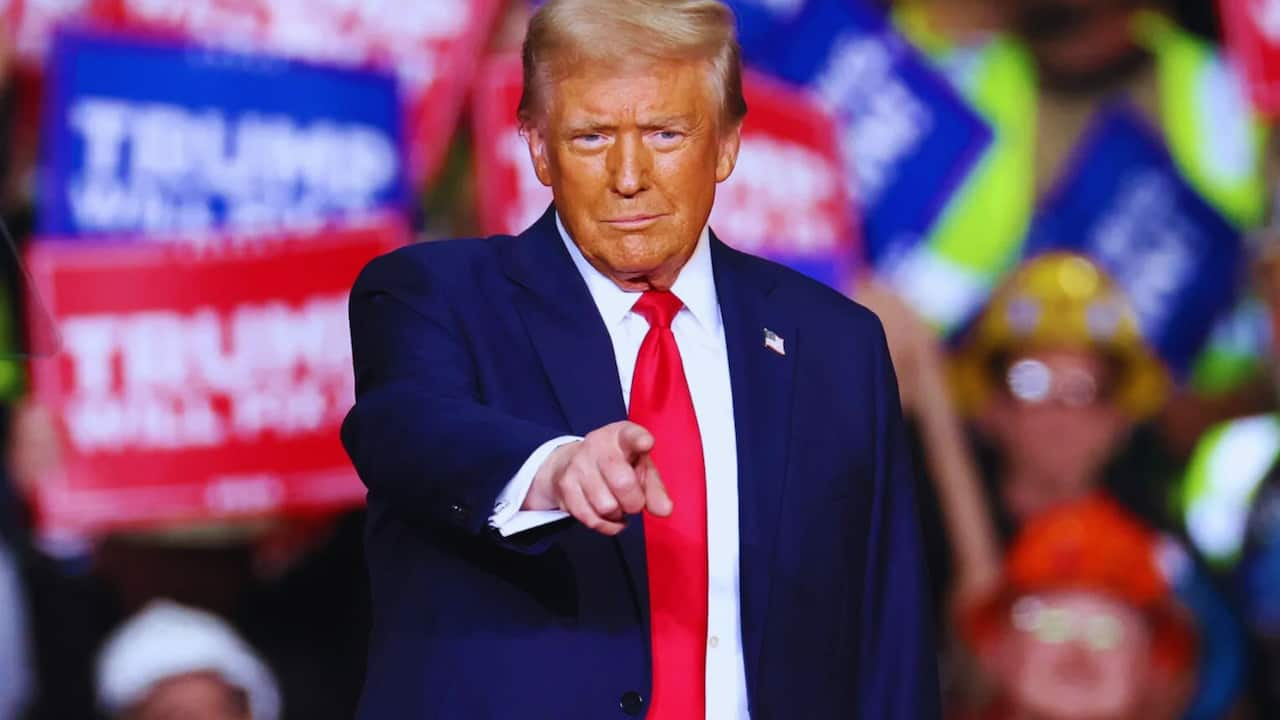Breaking: Trump Doubles Down on Mass Deportation Plans, Dismisses Cost Concerns
Following his victory in the 2024 presidential election, Donald Trump has made it clear that his administration will proceed with the planned mass deportation of undocumented immigrants, regardless of the cost.
In an exclusive interview with NBC News on Thursday, the president-elect declared there is “no price tag” on his controversial immigration enforcement plan, setting the stage for what could become the largest deportation effort in U.S. history.
“It’s not a question of a price tag,” Trump emphasized. “When people have killed and murdered, when drug lords have destroyed countries, they’re going to go back to those countries because they’re not staying here. We have no choice.”
The sweeping victory over Vice President Kamala Harris has emboldened Trump’s stance on immigration, which he views as a clear mandate from voters “to bring common sense” to the country. This comes despite warnings from immigration officials about the massive logistical challenges ahead.
The plan’s scope and challenges
Patrick J. Lechleitner, acting ICE Director, highlighted in July that such a mass deportation would face substantial operational and financial hurdles. The initiative would require unprecedented coordination between multiple federal agencies, including:
- Department of Justice
- Pentagon
- Department of Homeland Security
Immigration hawk and Stephen Miller, a key Trump adviser, have outlined controversial measures, including:
- The Alien Enemies Act expedites deportations.
- The National Guard and federal law enforcement are being deployed.
- We are building large detention facilities in rural Texas.
- Limiting due process in removal proceedings.
Surprising electoral support
Despite his tough stance on immigration, Trump made unexpected gains among Latino voters. His message that immigrants “have to come in with love for the country” and must enter legally was successful.
The president-elect maintains that his administration will still welcome legal immigration while making the border “strong and powerful.” He stated, “I’m not somebody who says, ‘No, you can’t come in.’ We want people to come in.”
Moving Forward
The transition is already underway, with Trump reporting “very nice” and “respectful” phone calls with both Harris and President Biden. Harris has committed to a smooth transition of power, addressing supporters at Howard University in her concession speech.
The incoming administration faces several immediate challenges:
- We are calculating the precise quantity of undocumented immigrants in the United States.
- Securing funding for the massive operation
- Coordinating between multiple federal agencies
- Addressing legal challenges to the plan
Impact on Communities
The planned crackdown has raised concerns among some legal immigrants. This follows controversial statements by Trump, including his September announcement targeting specific cities like Springfield, Ohio, and Aurora, Colorado, for initial deportation efforts.
Civil rights organizations and immigration advocates, concerned about the human cost of such a massive operation, have questioned the president-elect’s plan. However, Miller argues the move will benefit American workers through “labor-market disruption,” leading to higher wages and better benefits.
As January approaches, the nation watches to see how Trump will implement what promises to be one of the most ambitious and controversial immigration enforcement efforts in American history. A significant shift in U.S. immigration policy is imminent, with no apparent budget constraints and a clear mandate from his supporters.
